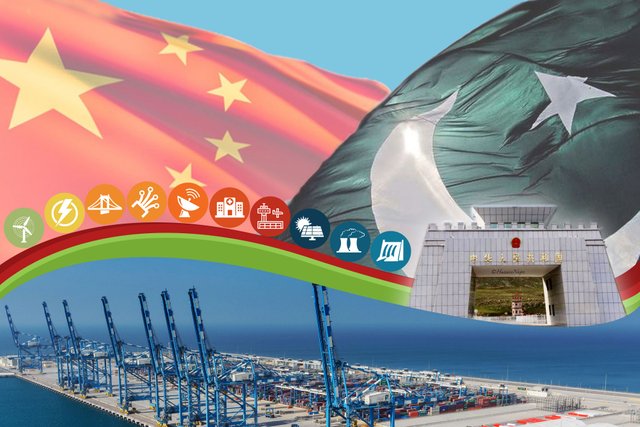CPEC The Game Changer!
China–Pakistan Economic Corridor (CPEC) is a collection of infrastructure projects that are currently under construction throughout Pakistan. Originally valued at $46 billion, the value of CPEC projects is worth $62 billion as of 2017. CPEC is intended to rapidly modernize Pakistani infrastructure and strengthen its economy by the construction of modern transportation networks, numerous energy projects, and special economic zones. On 13 November 2016, CPEC became partly operational when Chinese cargo was transported overland to Gwadar Port for onward maritime shipment to Africa and West Asia, while some major power projects were commissioned by late 2017.
Over $33 billion worth of energy infrastructure is to be constructed by private consortia to help alleviate Pakistan's chronic energy shortages, which regularly amount to over 4,500MW, and have shed an estimated 2–2.5% off Pakistan's annual gross domestic product. Over 10,400MW of energy generating capacity is to be brought online by the end of 2018, with the majority developed as part of CPEC's fast-tracked "Early Harvest" projects. A network of pipelines to transport liquefied natural gas and oil will also be laid as part of the project, including a $2.5 billion pipeline between Gwadar and Nawabshah to eventually transport gas from Iran. Electricity from these projects will primarily be generated from fossil fuels, though hydroelectric and wind-power projects are also included, as is the construction of one of the world's largest solar farms.
Projects in Gawader City..
China will grant Pakistan $230 million to construct a new international airport in Gwadar. The provincial government of Balochistan has set aside 4000 acres for the construction of the new $230 million Gwadar International Airport which will require an estimated 30 months for construction, the costs of which are to be fully funded by grants from the Chinese government which Pakistan will not be obliged to repay.
The city of Gwadar is further being developed by the construction of a 300MW coal power plant, a desalinization plant, and a new 300-bed hospital. Plans for Gwadar city also include construction of the East Bay Expressway – a 19-kilometer controlled-access road that will connect Gwadar Port to the Makran Coastal Highway. These additional projects are estimated to cost $800 million and are to be financed by 0% interest loans extended by the Exim Bank of China to Pakistan.
In addition to the aforementioned infrastructure works, the Pakistani government announced in September 2015 its intention to establish a training institute named Pak-China Technical and Vocational Institute at Gwadar, which is to be developed by the Gwadar Port Authority at the cost of 943 million rupees and is designed to impart to local residents the skills required to operate and work at the expanded Gwadar Port.
Pakistan is Hoping for the Best
The enhancement of geographical linkages having improved road, rail and air transportation system with frequent and free exchanges of growth and people to people contact, enhancing understanding through academic, cultural and regional knowledge and culture, activity of higher volume of flow of trade and businesses, producing and moving energy to have more optimal businesses and enhancement of co-operation by win-win model will result in well connected, integrated region of shared destiny, harmony and development.
China Pakistan Economic Corridor is a journey towards economic regionalization in the globalized world. It founded peace, development, and win-win model for all of them.

.jpg)